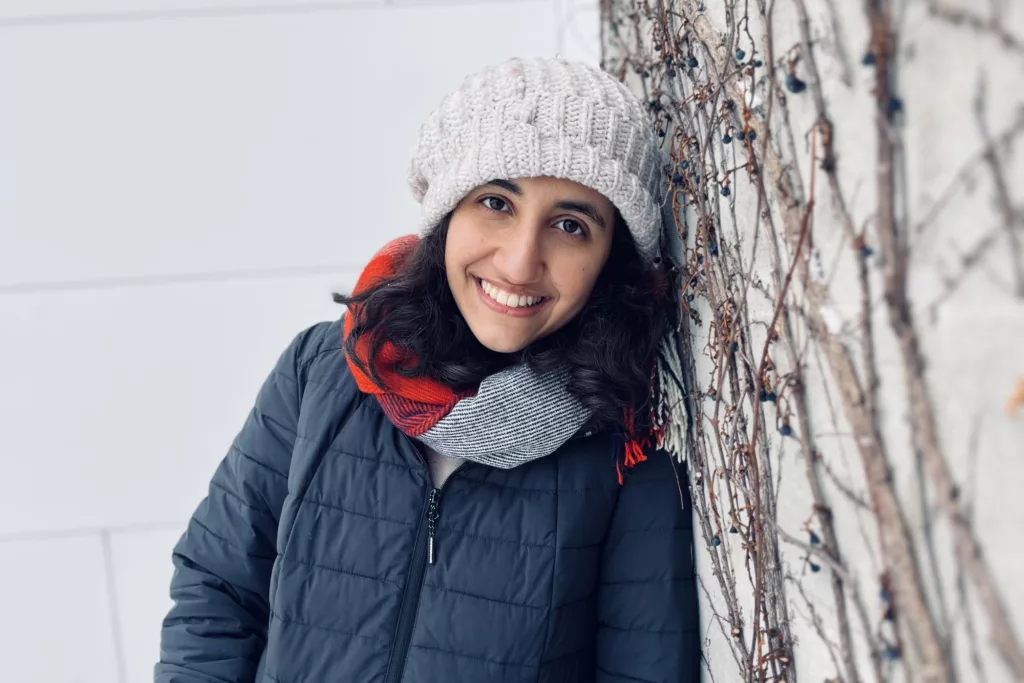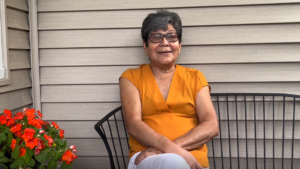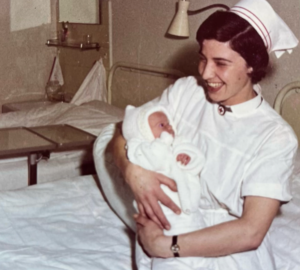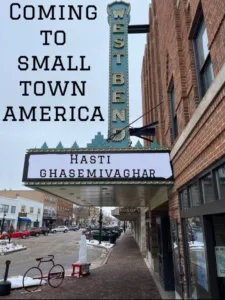
To get invited to the Milwaukee Film Festival, all Hasti Ghasemivaghar needed was a good idea and 10 bucks.
Ghasemivaghar’s “Coming to Small Town America” is one of six nonfiction shorts included in a festival package called The Milwaukee Youth Show: Recording Reality. The program, which is new this year, showcases documentaries made by area youth that emphasize diverse personal and community stories. Ticket holders can see the package at 10 a.m. Sunday inside the historic Oriental Theatre on North Farwell Avenue.
For “Coming to Small Town America,” Ghasemivaghar interviewed four people with varied backgrounds who emigrated from their home countries and now live in West Bend, a modest city 40 miles north of Milwaukee with a homogenized population of nearly 32,000. What does it mean to leave everything behind and start fresh in an unfamiliar world? Will this new place ever feel like home?

Viewers first meet Dora Vela, a 68-year-old retired teacher from Peru who knew little English upon arriving in Wisconsin in 2017. The 49-year-old Sandra Hoffmann then explains how she left a journalism career in a bustling Brazilian city to become a teacher in Wisconsin because her in-laws are from the area. She now works at the West Bend Community Library.
In Vietnam, the soft-spoken Tuan Nguyen was a student, but now he is a 27-year-old nail technician thankful that his uncle sponsored his entire family’s relocation to the Midwest. Christa Kersten, now 82, was a nurse in Germany who married an American and came to the United States in 1965, eventually working in a facility for the elderly. She liked settling in West Bend because the “hilly country” of the Kettle Moraine region reminded her of home.

“The cold, of course!,” Sandra says when asked about the challenges of living in West Bend, and Dora echoes that unsurprising answer. What’s less predictable is how gently the movie coasts along, so much so that when all four participants say that West Bend absolutely feels like home, it’s easy to believe them.
Ghasemivaghar, an 18-year-old senior at West Bend East High School, hopes that viewers will grasp how the difficulties faced by immigrants are universal.
“I did not want to deal with politics,” she said. “I just wanted to normalize the journey of an immigrant and how everyone faces struggles when they are exposed to a new environment.”
That message is personal for Ghasemivaghar, who was born in Tehran. She left Iran at the age of 12 in 2017, after her parents decided to reunite with extended family living in the U.S. Her father Mostafa manages properties in West Bend and her mother Mahnaz, who was a librarian at a dental university in Tehran, is retired. At home, the family’s primary language is Farsi.
Before arriving in West Bend, Ghasemivaghar’s notions about American schools came from the movies.
“The movies do a horrible job!,” she said. “They show these mean girls walking down the hallway pushing everyone aside, but it’s nothing like that. It’s a different culture, and it was kind of scary, but slowly you find people that you share common ground with.”
Despite making good friends and acclimating to seventh grade, Ghasemivaghar remembers classmates giggling when she got a cultural norm wrong, like when she said “trousers” instead of “pants.” She couldn’t easily shake the feeling of being an outsider.
“There was a librarian, and she would always say that I have such a cute accent,” Ghasemivaghar said. “I know she probably meant it in the best way, but I didn’t like it because it made me think that I do have an accent that sticks out.”
Fluent in both Farsi and English, Ghasemivaghar knows a little Spanish and French, too. She can read Arabic, but not speak it. In high school she has taken seven Advanced Placement courses, served as president of the National Honor Society, mentored incoming ninth graders and participated in student council, the student newspaper, forensics, Science Olympiad and tennis. She will graduate in June as one of four valedictorians.
But she didn’t take any classes related to filmmaking or digital media. To make the 17-minute “Coming to Small Town America,” she needed to start from scratch.
Ghasemivaghar knew that she wanted to do something special during her senior year of high school, and she landed on the idea of a short documentary, finding her interview subjects through connections at the West Bend Community Library. She used her father’s iPhone 13 to shoot the footage and spent $10 to download CapCut, an editing program that was the project’s sole expense.

She started working on “Coming to Small Town America” in July, locked it down in January and, just like an action hero in a race against time, submitted it to the Milwaukee Film Festival on the last day of eligibility.
After chatting with Ghasemivaghar about her film—and I should disclose that I provided counsel during the editing stage—it’s not hard to understand why she felt drawn to Dora, Sandra, Tuan and Christa. Their stories are her story, too. She even feels the same way Sandra does about the weather in southeast Wisconsin.
“Tehran’s weather is more like New York,” Ghasemivaghar said. “It never snows completely. Suddenly, West Bend, Wisconsin, whoa. In winter usually you will see us at home with thick blankets around us, and just moving around in the house like robots because there’s so many layers.”
* * *
Sunday’s program will also present Catcher Stodola’s “Controlling the Change,” Quinn Jennings’ “Fadó,” Sanaa Thomas’ “Pretty Boys,” Mira Santo Tomas’ “Seventeen” and Rachel Faye Lubar’s “Zayde.” The Milwaukee Youth Show: Recording Reality is part of MFF’s Cream City Cinema strand, which spotlights new features and documentaries made by Milwaukee-area filmmakers.
The Milwaukee Film Festival starts today and runs through May 4. The full lineup plus ticket and venue information are online at mkefilm.org/mff.
